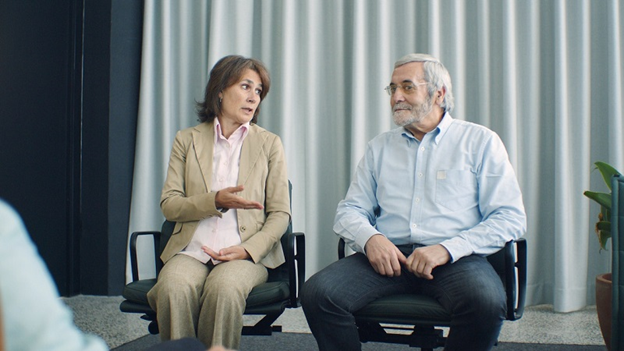Teamwork is essential to a healthy marriage. It’s also a crucial part of therapy or counseling. If you and your partner are seeking help via therapy (which is sometimes also called “marriage counseling”), you’ll see more benefits when you put equal effort into the process.
TO: The following tips for couples cou
Be Ready to Be Yourself
Many people feel pressured to hide their flaws or act like the perfect partner. This fear of showing vulnerability is common, but sharing your true thoughts and feelings is essential for a healthy relationship. Hiding your real self might seem to work for a while, but it will eventually harm your relationship.
Being yourself helps build intimacy and creates a stronger connection with your partner. Studies show that people who are genuine engage in fewer harmful behaviors and have more positive relationships. Plus, being authentic allows both you and your partner to grow together, fostering a deeper bond and understanding.
Think About Outside Influences on Your Relationship
People around us can greatly influence how we view things, including our relationships. While these influences can be helpful, they can also be harmful. When looking at your relationship, consider if outside opinions have affected how you see your partner.
For example, if a friend or family member is very critical of your partner, it might cause you to view them more negatively. It’s okay to seek advice from others, but in a healthy relationship, you and your partner should be on the same team. Talk about these influences with your therapist and, if needed, set boundaries with certain friends or family members.
Define and Share Goals
Setting and defining your goals for therapy is one of the most important steps you can take. Before your first session, talk with your partner about what you want to achieve through counseling. These goals will help you stay focused and see your progress over time.
Discussing your goals ensures that you and your partner are on the same page. Share your personal goals and work together to identify common objectives. Common goals in marriage therapy might include improving communication, finding healthier ways to resolve conflicts, and understanding the root causes of disputes.
Be Honest
Everyone knows that honesty is important, but lying in therapy is surprisingly common. A study
from Columbia University found that 93% of participants had lied to a therapist. Remember, honesty is key to effective therapy.
You might be tempted to tell a small lie to avoid embarrassment or protect your partner’s feelings. Resist this urge and express your true thoughts and emotions, even when it’s hard. While the truth can be painful, being honest is essential for identifying and addressing the issues in your relationship.
Reflect on the Past
Problems in a relationship often come from past experiences. Our relationships with our caregivers as children can shape our expectations for future relationships. Talking about significant past events, even those that happened before you met your partner, can be very helpful.
Discussing past experiences helps you work through current relationship issues and be more sensitive to each other’s needs. Openness can lead to healing, allowing you to overcome past traumas and build a healthier relationship in the present with the help of your therapist.
Communicate Clearly and Listen Actively
Good communication is key to getting the most out of therapy. Not only should you share your thoughts and feelings, but you should also take the time to explain them clearly.
When your partner shares their perspective, listen actively. Instead of getting defensive, try to understand where they are coming from. Research shows that active listening improves relationship satisfaction. Show your partner you are engaged by nodding, maintaining eye contact, and waiting until they finish speaking before you respond. Good communication is a cornerstone of any healthy relationship.
Ask Questions
While it’s important to listen, it’s also crucial to ask questions. If you’re having trouble understanding your partner’s perspective, asking questions can provide clarity.
However, some questions can seem defensive. Before asking, show that you care about your partner’s feelings. For example, if your partner says they don’t feel loved, reassure them of your feelings and ask how you can better show your love and support. Understanding their love language and acting on their feedback can strengthen your relationship.
Find the Right Marriage Counselor
No marriage is perfect, and you can’t avoid all problems. Sometimes, you have to face issues directly, but with the right tools and support, you can work towards a happy marriage.
The tips provided here can help you make progress, but finding the right therapist is also essential. Talkspace can help you find a good marriage counselor who meets your needs. With the right therapist, you and your partner can work together to build a healthier and happier relationship through online counseling.

